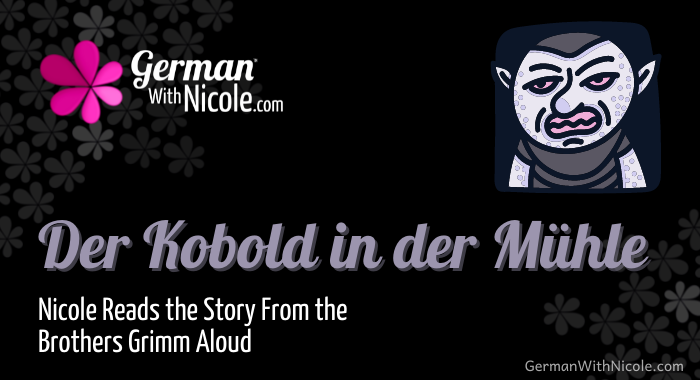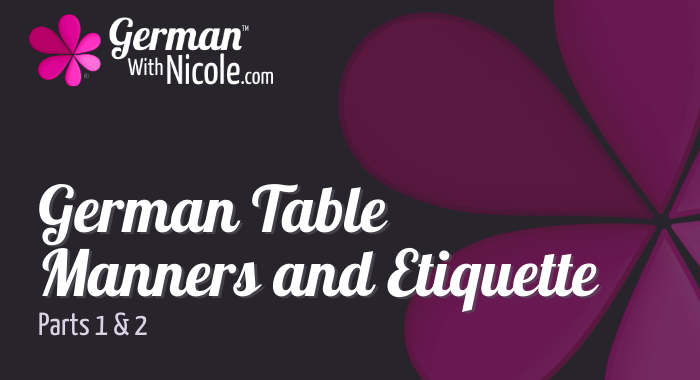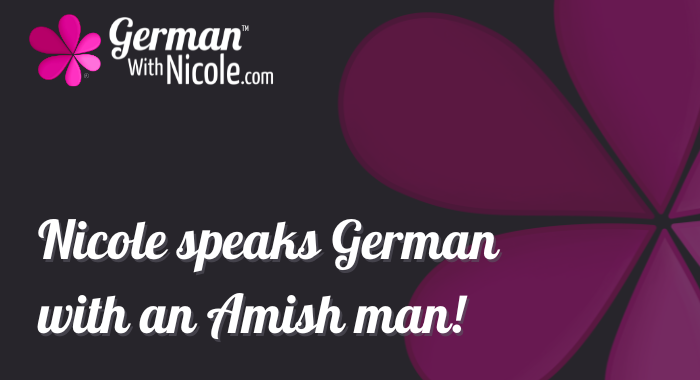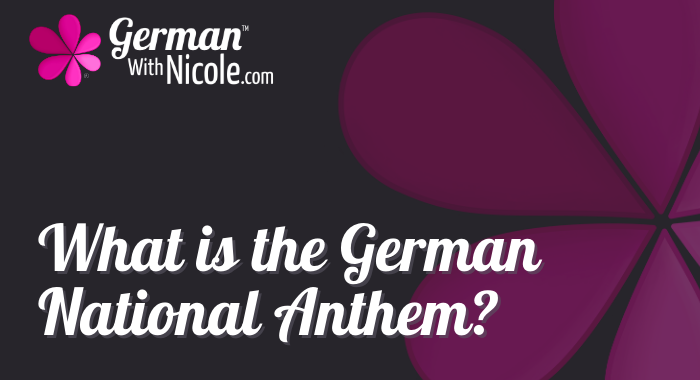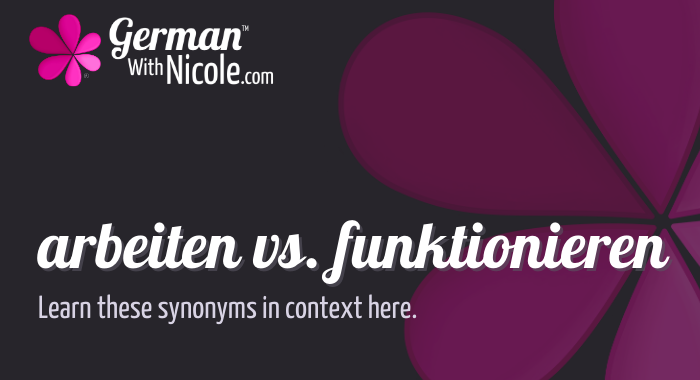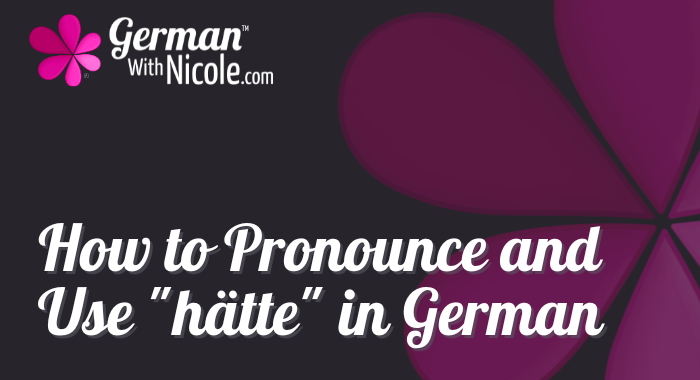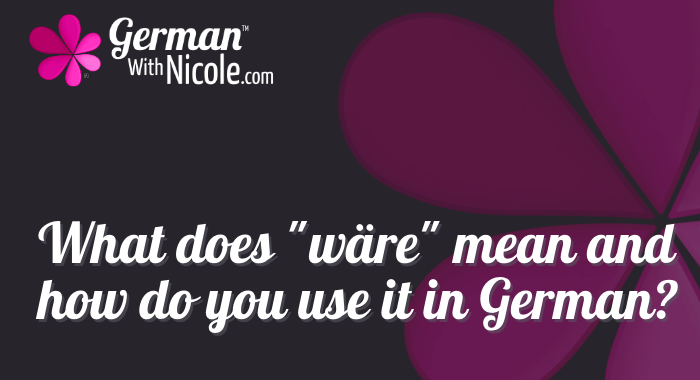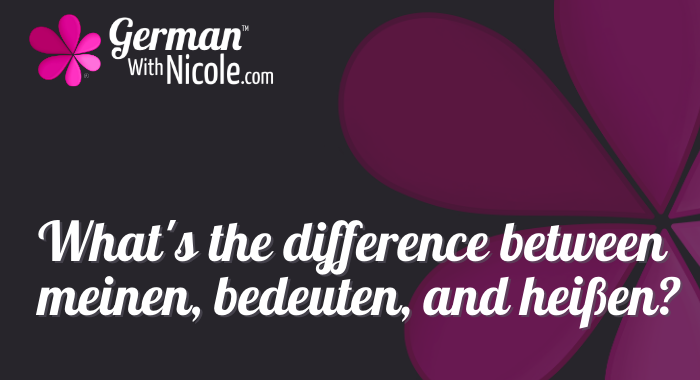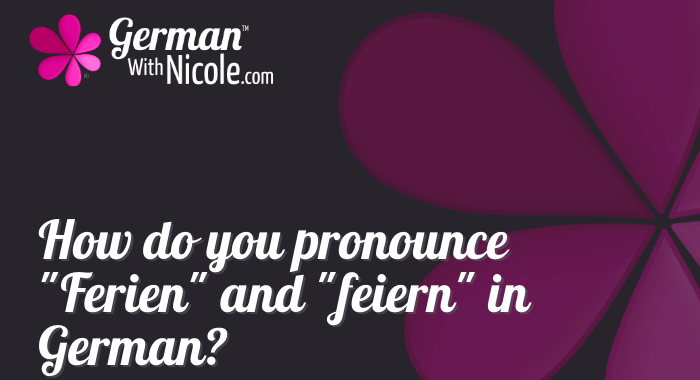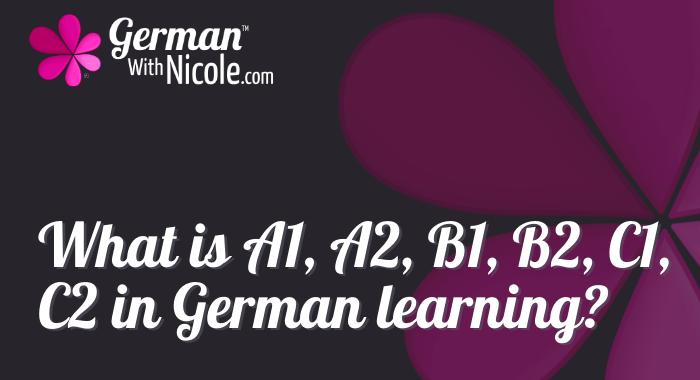Good ol'-fashioned RSS Feed
das Blog
Podcast
Frau Warner reads aloud: "der Kobold in der Mühle" from the Brothers Grimm
It's a 'scary' time of year and to go along with it, here is your Brothers Grimm fairy tale in a video.
You might not know Der Kobold in der Mühle, however it's every bit as eery as the other fairy tales.
What does Kobold mean?
A Kobold is a "house spirit," a German folk being who takes care of household tasks and sometimes causes mischief.
Britannica.com has a fantastic description of a Kobold that includes this important information:
"...mischievous household spirit who usually helps wi…
German Table Manners and Etiquette, Parts 1 and 2
German table manners and etiquette might be like what you know, or they might be very different.
In German this is called Esskultur is the culture of food, dining, and manners.
For most Germans, Esskultur begins when they are in high chairs and their parents teach them to eat when the adults are eating, to wait until the adults are finished to be excused from the table, how to use a napkin, and how to use their eating utensils.
In the US, manners vary widely and the manners you learn depends …
Frau Warner speaks German with an Amish man!
In August I visited friends in Ohio and their area is also Amish country.
We visited Behalt, an Amish & Mennonite Heritage Center, and I got to speak German with an Amish man.
I got to speak German with an Amish man!!!
I also learned that:
-
most people have no clue about the Amish and Mennonite people.
-
most of what we (think we) know about the Amish and Mennonite is incorrect.
-
the Amish speak no Dutch!
-
they're also not from Pennsylvania.
-
they don't all speak Pfälzisch.…
What is the German National Anthem?
The German National Anthem is known as the Nationalhymne or Das Lied der Deutschen, "The Song of the Germans."
In today's episode of the podcast for German learners you'll hear:
-
the current national anthem
-
a bit of its history
-
the German National Anthem sung in German (by yours truly!)
It's really important to note the specifics of this Anthem because there is a strong connection to German history, one that is to be remembered and respected.
Besides, wouldn't you like to im…
arbeiten versus funktioneren
When should you use 'arbeiten' and when should you use 'funktionieren'?
All the answers are in this episode!
You'll learn these two verbs in the context of wine harvest, too, because it's wine harvest time.
Learning to differentiate synonyms in German works really well when you use context.
This way you can easily build a picture in your mind that will help you for all of your German learning.
If it helps, you can even draw yourself a little sketch of a scene you'll hear in this episode.
A…
How to Pronounce and Use hätte in German
Knowing how to pronounce hätte correctly in German is one thing. Using it correctly is another.
In today's German lesson you'll learn both how to say hätte correctly and how to use it in a few specific phrases.
Imagine how confident you'll feel knowing exactly what to say and pronouncing everything correctly. This will be a step up for your German.
Plus you'll learn how to say "shoulda, woulda, coulda" in German, which uses hätte, and will surely impress your German friends the next time they…
What does "wäre" mean and how do you use it in German?
This episode will take the fear out of using wäre in German.
All it means is "would be," but would be has nothing to do with reality. It actually has to do with things which are unreal.
Something that isn't true now, but would be nice or would be nuts or would be fantastic.
This grammar topic is known as the "Konjunktiv II." We'll use only the present tense today.
If this is brand new for you, it's best to take it one step at a time. The first step are the very straight-forward sentences (or…
What's the difference between meinen, bedeuten, and heißen?
Synonyms in German function differently--they overlap differently--than in English.
Well, of course they do, right? Because it's a different language.
A lot of German learners - A1, A2 and B1-level learners confuse the verbs meinen, bedeuten, and heißen because in English they all mean "to mean."
bedeuten = to mean
heißen = to mean (also means "to be called," which you'll hear as well today)
meinen = to mean
UGH!
The good news is, there are ways to tell them apart and you'll learn them in…
How do you pronounce "Ferien" and "feiern" in German?
Summer vacation (or summer holidays) are drawing to a close for loads of people in the northern hemisphere.
So what are these called in German?
Das sind die Ferien.
And why is that word so frequently confused with "feiern"?
Because they are so similar.
In this episode of the GermanWithNicole.com podcast you'll learn how to pronounce these two words, which article you should use with Ferien (it's simpler than you might think), and a couple of example sentences so you can remember which word …
What is A1, A2, B1, B2, C1, C2 in German learning?
In this 5th episode of the GermanWithNicole.com Podcast you'll learn what these designations mean for German learning.
You've surely seen this alphabet-number combination on German learning materials and maybe you've seen or taken a German language assessment test and received one of these combinations as a result. “You can take a class at the A2 level.”
But what does it mean?! And why should you care?!
Hint: Understanding these combinations will make your German learning life sooooo much eas…
Categories
- A1 (70)
- A2 (55)
- B1 (47)
- B2 (24)
- C1 (22)
- Deutsch lernen (82)
- Einkaufen (15)
- Essen (12)
- Grammatik (24)
- Hören (14)
- Landeskunde und Kultur (50)
- Lesen (11)
- Musik (5)
- Nachrichten (4)
- Podcast (66)
- Pronunciation (3)
- Schreiben (4)
- Schwäbisch (4)
- Spiele und Spaß (Games and Fun) (12)
- Sprechen (12)
- Vokabeln (41)
- Video (13)
Would you like to hear about future German classes with Frau Warner?
With the E-Post, you'll receive information on German class registration and goings-on in German classes, all written by Frau Warner. You'll receive an email on Tuesdays, plus an extra email or two when class registration opens or there's something new.
If you use Gmail: please check your "promotions" folder.
